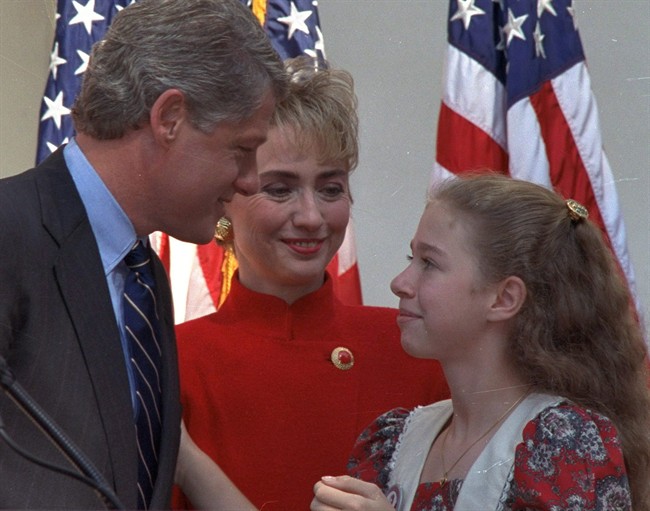WASHINGTON – It’s hard to imagine a better-known U.S. presidential candidate than Hillary Clinton, who is set to launch her latest campaign. Her place in the public eye stretches back to before she was a secretary of state, senator, presidential candidate, first lady, and governor’s wife. She was even featured in Life magazine for delivering a progressive college commencement address at age 21.

READ MORE: Hillary Clinton set to announce presidential campaign on Sunday: sources
Here are five facts about the 2016 candidate that predate her public life:
She began life as a Republican
She was a committed young Republican, inspired partly by her dad. At age 13, she travelled without her parents’ permission to a rough Chicago area to investigate the Kennedy campaign for voter fraud, armed with a voters’ list. She found an empty lot and a bar cited as addresses for multiple JFK voters. She wore Barry Goldwater campaign gear in 1964, became president of the Young Republicans club in college, and that’s where she underwent her partisan conversion.
She has French-Canadian ancestry

Get breaking National news
She mentions it in her book, “Living History.” A late Washington genealogist known for researching the family trees of U.S. politicians probed further and found her tree included the names Campeau, Beaudry, Lefebvre, Picard, Duguay, Boucher, Gagnon, Hebert and, like Quebec’s current premier, Couillard.
- NDP to join Bloc in backing Liberals against non-confidence vote
- Macron and Trudeau will meet in Canada next week. What’s on the agenda?
- Ethics commissioner will not investigate Boissonnault over ‘Randy’ texts, says the matter is closed
- N.B. election: Higgs went to ‘very dark place’ with Liberal joke, opponent says
She repeatedly rejected Bill Clinton’s marriage proposals
She describes in her book how she first met her husband. He was holding court with fellow Yale law students, bragging about Arkansas having the world’s biggest watermelons. One day he stared at her in the library, so she went up and introduced herself. On an impromptu first date they managed to enter a closed, empty museum because he talked their way in. He later proposed on a trip to England. She replied, “No, not now,” and eventually shot him down enough times that he said he’d never ask again. But two years later, he drove her up to a house she’d liked in Arkansas, announced he’d bought it, and said she’d have to marry him because he couldn’t live there alone. She said yes.
She failed a bar exam
While she passed one in Arkansas, she failed in Washington, D.C. She’d been a top-notch law student. However, she was stumped by an exam that changed that year, from a focus on local law and essay questions to multi-state law and multiple choice. The National Journal used this episode as fodder for a lengthy profile last year that suggested that her strengths as a politician – bright, meticulous, hard-working – are occasionally offset by one persistent weakness: a failure to improvise.
She did some sleuthing
Her early legal jobs had her doing investigative work, a bit like she’d done to document fraud by the JFK campaign. She writes about gathering information on segregation in Alabama schools – by posing as a mom looking to enrol her child in a whites-only school in 1972. She also looked into the treatment of farm workers, and disabled children lacking access to school. She then joined the staff of the Richard Nixon impeachment investigation. That job ended when Nixon resigned. That’s when she moved to Arkansas, joining her soon-to-be-husband who, ironically, would be the next U.S. president to face impeachment proceedings.







Comments